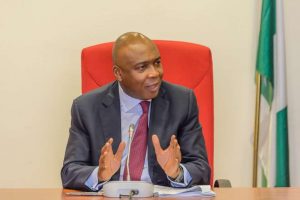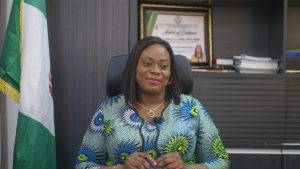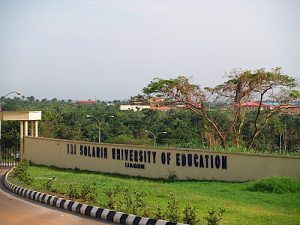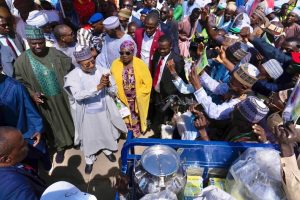Consultant at the United Nations Development Programme (UNDP)

The United Nations Development Programme (UNDP) is the United Nations’ global development network. It advocates for change and connects countries to knowledge, experience and resources to help people build a better life for themselves. It provides expert advice, training and grants support to developing countries, with increasing emphasis on assistance to the least developed countries. It promotes technical and investment cooperation among nations.
Headquartered in New York City, the status of UNDP is that of an executive board within the United Nations General Assembly. The UNDP is funded entirely by voluntary contributions from UN member states. The organization operates in 177 countries, where it works with local governments to meet development challenges and develop local capacity.
We are recruiting to fill the position of:
Job Title: Consultant for Human Rights Due Diligence Policy (HRDDP) General and Preliminary Risk Assessment Framework
Location: Abuja
Type of Contract: Individual Contract
Post Level: National Consultant
Starting Date: 01-Aug-2021 (date when the selected candidate is expected to start)
Duration of Initial Contract: 30 Working Days within a period of two Months
Expected Duration of Assignment: 30 Working Days
Background
- The United Nations Human Rights Due Diligence Policy (HRDDP) is a UN system wide obligatory policy that regulates the relationship between UN programmes, funds, and agencies with non-UN security agencies.
- The HRDDP was issued by the United Nations Secretary-General on 13 July 2011 and is intended to serve as a risk management mechanism to ensure that any support provided by United Nations entities to non-United Nations security forces is consistent with the purposes and principles set out in the Charter of the United Nations and with its obligations under international law to respect, promote and encourage respect for international humanitarian, human rights, and refugee law. In January 2016, the UN Resident Coordinator communicated the HRDDP to the national authorities vide a Note Verbale to the Ministry of Foreign Affairs.
- According to the HRDDP, “UN entities that are contemplating or involved in providing support to non-UN security forces must conduct an assessment of the risks involved in providing or not providing such support, in particular the risk of the recipient entity committing grave violations of international humanitarian law, human rights law or refugee law”. Furthermore, “each UN entity should take into account the need to promote consistency in the implementation of the policy across the UN-system.
- One of the key components in implementing the HRDDP is the General and Preliminary Risk Assessment Framework (GPRAF). The GPRAF is a basic inter-agency risk assessment, to be carried out under the coordination of the most senior UN official in-country, representing the common position of the UN system with regard to the level of risk that generally exists for security forces in-country to commit grave human rights violations. The GPRAF compiles relevant and available information regarding human rights violations committed by security forces. Such document will also facilitate and speed up the process of individual risk assessments that have to be undertaken by each UN entity under the HRDDP.
- UN Country Teams are encouraged to adopt a GPRAF when support is planned or already provided by two or more UN entities to non-UN security forces in the country. The main objectives of GPRAF are to avoid duplication of efforts (when different UN entities are involved in a variety of support to the same national security forces or one UN entity is involved in different types of support to the same security forces), and to ensure a coherent and consistent assessment of security forces by UN entities in the same country.
- The UN is, therefore, seeking an experienced consultant to prepare a General and Preliminary Risk Assessment Framework under the HRDDP.
Duties and Responsibilities
- Under the overall supervision of the UN Senior Human Rights Adviser, the consultant will undertake the GPRAF.
- In undertaking these tasks, the incumbent will be required to draw upon United Nations and other sources relevant to the assessment of Nigerian security agencies, including through a gender analysis.
- In particular, the incumbent will be required to undertake a desk review of human rights reports produced by the Office of the High Commissioner of Human Rights (OHCHR), including the HRDDP risk assessments if available, reports of the Universal Periodic Review (UPR), United Nations Treaty Bodies and special procedures, reports of the Secretary General to the Security Council on UNOWAS, reports of other United Nations mechanisms, offices or agencies (e.g. Special Representative of the Secretary-General on Sexual Violence in Conflict), reports of United Nations commissions of inquiry, decisions of United Nations treaty bodies on individual cases, and UNODC Transnational Organized Crime Threat Assessments (see the United Nations Inter-Agency HRDDP Guidance Note (2015) – Sources of information for the risk assessment, pp. 20-21 for the detailed list). The incumbent will also cover reports and individual cases related to sexual exploitation and abuse from the United Nations Conduct and Discipline Service (CDS) (https://conduct.unmissions.org/documents-standards) and the United Nations Office of Internal Oversight (OIOS).
- The incumbent is also required to take into consideration non-UN reports -emanating from the National Human Rights Commission, regional human rights bodies. Other reports to be considered include those from civil society groups, NGOs and INGOs.
- The incumbent will also be expected to perform the following duties in consultation with OHCHR headquarters, regional and country offices, the United Nations Country Team, UN Women regional and country offices, CDS, OIOS, United Nations protection sector, national human rights institutions and international and national non-governmental organizations:
- Develop a comprehensive assessment of the risks related to the provision of support to Nigerian security services;
- Identify and develop a comprehensive set of mitigation measures addressing the risks identified related to the projects from the above-mentioned security institutions.
- Develop a monitoring, evaluation and reporting framework for implementation of the mitigation measures where necessary, as well as recommendations for field verification to ensure ongoing HRDDP compliance by the above-mentioned security institutions; and
- Provide inputs to standardized documents for the UN on HRDDP that are applicable to all projects under consideration (e.g. standardized matrix of risk assessment criteria specific to the type of projects eligible for support by the UN, a standardized matrix of mitigation measures and an analytical framework to identify the level of risk, as well as, standard operating procedures for implementing, monitoring and evaluating the mitigation measures), as well as standardized templates to be used for internal processes and communication to beneficiaries and partners.
Deliverables
The deliverables are to be written in English and include the following:
- A General and Preliminary Risk Assessment Framework (GPRAF) including elements identified in the HRDDP Guidance Note (2015).
- Comprehensive HRDDP risk assessment report and mitigation measures
A comprehensive HRDDP risk assessment report for the Nigeria security agencies, on the UN support to be provided in accordance with detailed project proposals:
- The report should contain the elements to be considered for a risk assessment of specific security agencies as listed on pages 18 to 20 of the Inter-Agency HRDDP Guidance Note (2015) namely:
- Human rights record
- Accountability record
- Prevention mechanisms
- Legislative / policy framework
- United Nation’s ability to influence and risk of not providing support
- Risks inherent to the kind of support envisaged.
- The assessment should also include violations for which women are particularly at risk such as sexual harassment within the uniformed services and sexual exploitation and abuse.
- Action should include:
- Comprehensive set of mitigation measures for each risk identified, or related to the implementation of projects in support of each security institution;
- Detailed regular monitoring and reporting framework; and
- Recommendations for field verification to ensure HRDDP compliance where required.
Scope of the Work
- Under the overall supervision of Head of stabilization, the consultant will report directly to the Communications Specialist to deliver the documentary. The Contractor will be expected to deliver any of the following as required during the whole duration of the contract:
- Photo-documentation of the Programme activities (human-interest photo-essays, infrastructure where UNDP and partners has been working, field activities, engagement with communities or beneficiaries), for public dissemination by RSS Secretariat.
- Clearly identify location, name and age of interviewees, quotes, and any relevant details.
- Include appropriate UNDP and its partners branding and crediting of RSS ownership for the produced videos.
- Archive the edited output in an external hard disk along with professional log.
- Photos produced on the Assignment will successfully capture and emotionally express the core elements of the situation assigned for coverage.
- The coverage will include different visual perspectives (close-up, medium range, long distance), with a preference for horizontal framing, as noted.
- Photos will be technically good (properly exposed, framed, focused, and edits well optimized). Complete caption information and other metadata will be embedded in the files, as described.
- Conduct 20 interviews of Governors and beneficiaries (the list will be shared after conclusion of the contract).
Education and Certification
- Advanced University Degree (Master’s Degree or equivalent) in International Relations, Human Rights, International Law, Humanitarian Law, Political Science, Social Sciences, Gender Studies or related field.
- A first-level University Degree in combination with two additional years of qualifying work experience may be accepted in lieu of the advanced university degree.
Work Experience:
- A minimum of seven years of progressively responsible experience in human rights, international law, gender or a related area is required.
- Experience with implementation of the HRDDP policy and risk assessment is required.
- Experience with developing an analytical framework from a gender perspective, analysing human rights-related documents, human rights monitoring or fact finding, research, reporting methodologies and report writing is required.
- Experience working in Nigeria is desirable.
- Experience working with security institutions is desirable.
- Experience on project development, management, and evaluation concepts and procedures is an advantage.
- Experience with inter-agency collaboration is an advantage.
Language Requirements:
- Fluency in English (written and spoken) is required.
Competencies
Un Core Values:
- Respect for Diversity;
- Integrity;
- Professionalism.
UN Core Competencies:
- Awareness and Sensitivity Regarding Gender Issues;
- Accountability;
- Creative Problem Solving;
- Effective Communication;
- Inclusive Collaboration;
- Stakeholder Engagement;
- Leading by Example.
Technical / Functional Competencies:
- Solid technical knowledge in the design and formulation of HRDDP related documents, processes and procedures;
- Knowledge of gender issues, especially in the context of peace operations and gender-based violence;
- Comprehensive knowledge of and exposure to a range of human rights issues, including related to the operation of security forces;
- Solid knowledge of the international legal framework, institutional mandates, policies and guidelines
- Ability to draft, edit and prepare clear and concise reports;
- Strong analytical and research skills, including ability to evaluate and integrate information from a variety of sources;
- Highly effective organization and planning skills and high attention to detail;
- Demonstrated ability to develop and maintain strong relationships and partnerships;
- Good level of computer literacy;
- Ability to handle confidential and politically sensitive issues in a responsible and mature manner; and Sound judgment with proven ability to work effectively under minimum supervision.
Application Closing Date
22nd July, 2021 (Midnight New York, USA).
The post Consultant at the United Nations Development Programme (UNDP) appeared first on Jobs in Nigeria – http://jobsinnigeria.careers.







